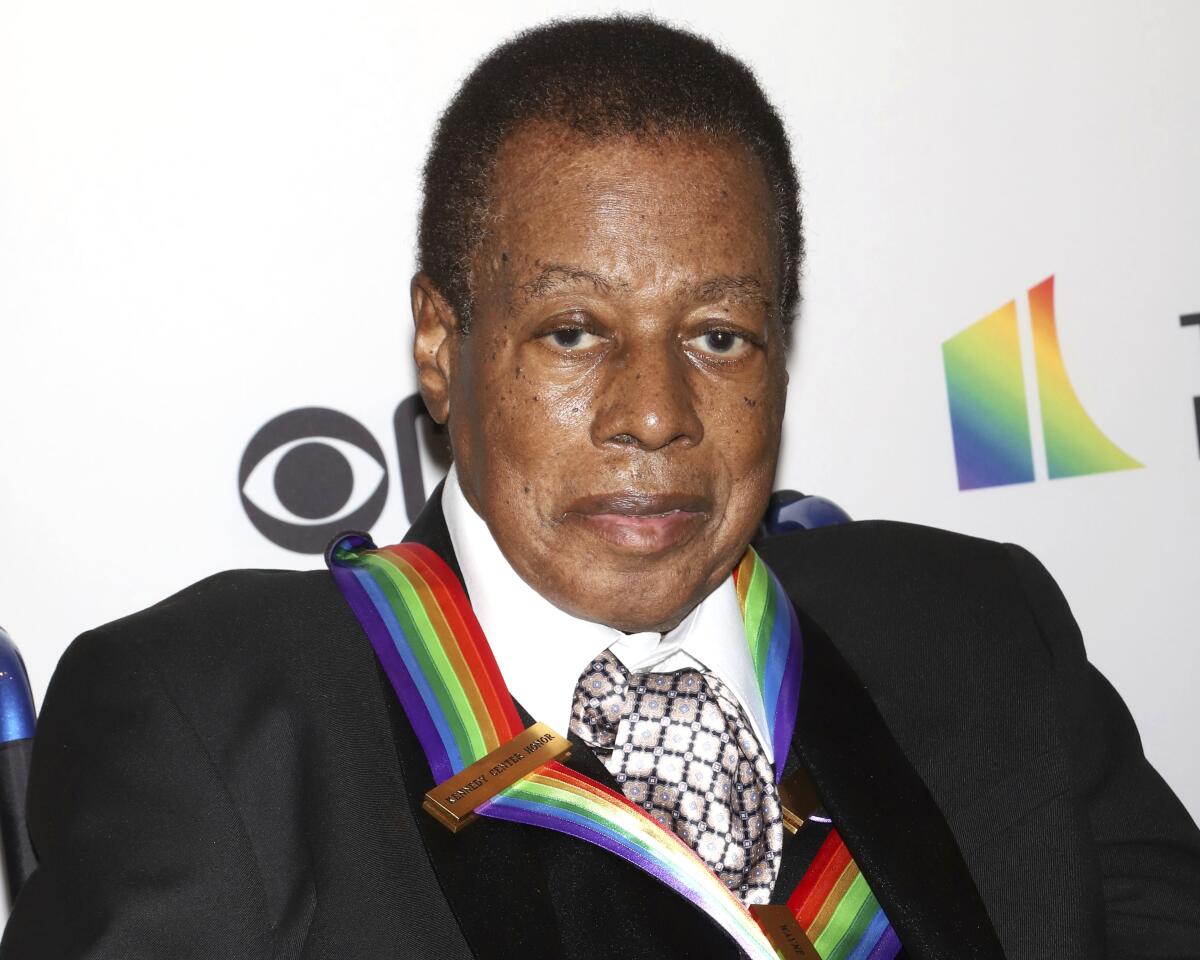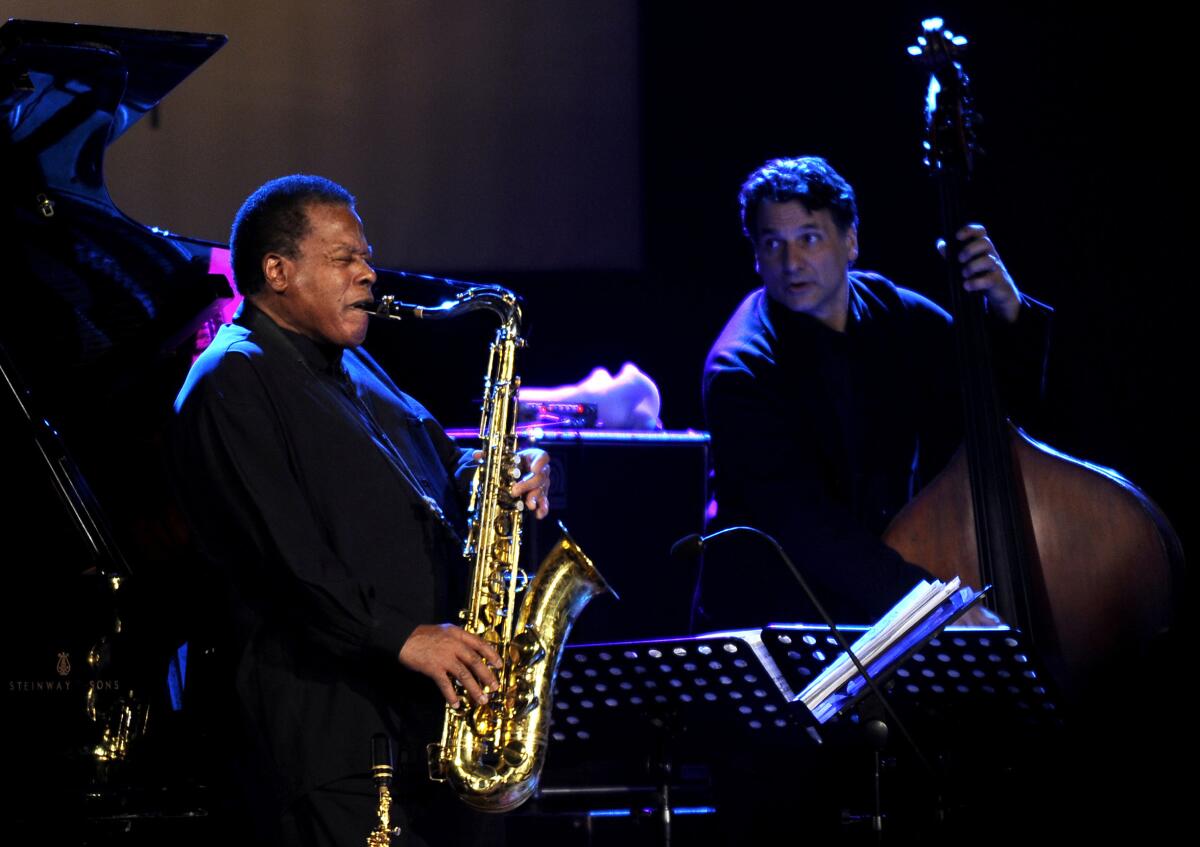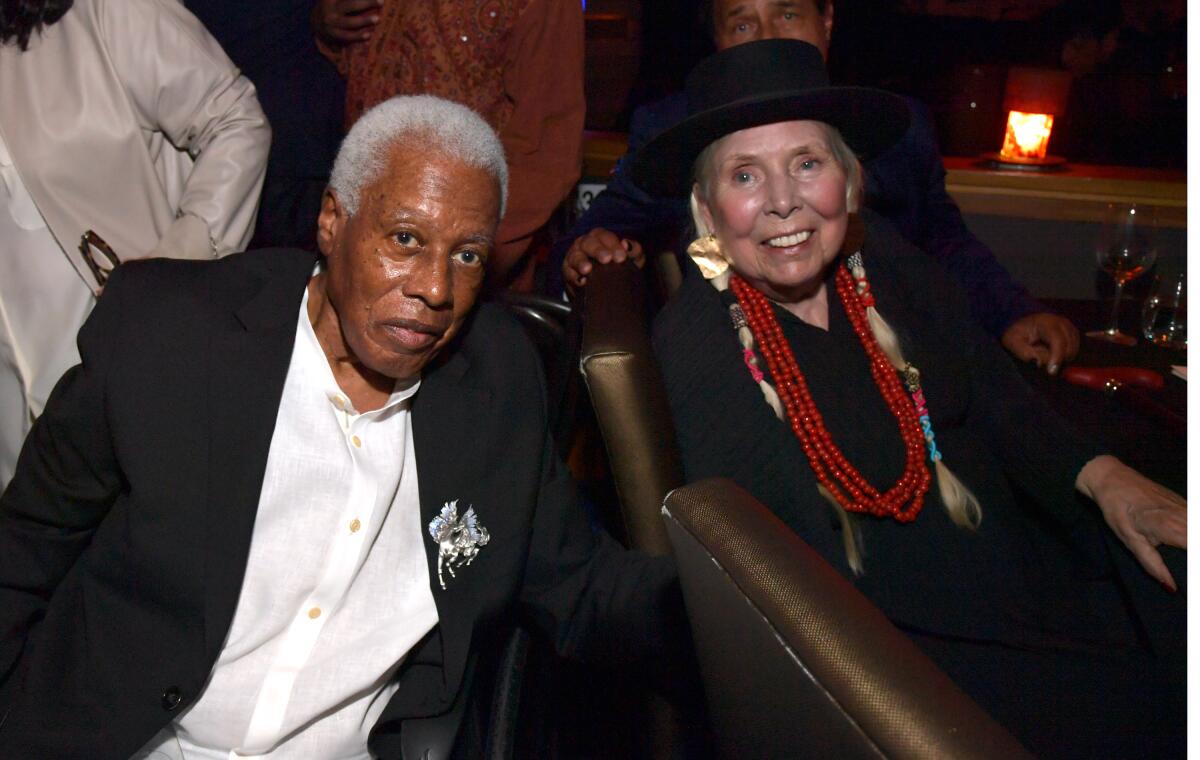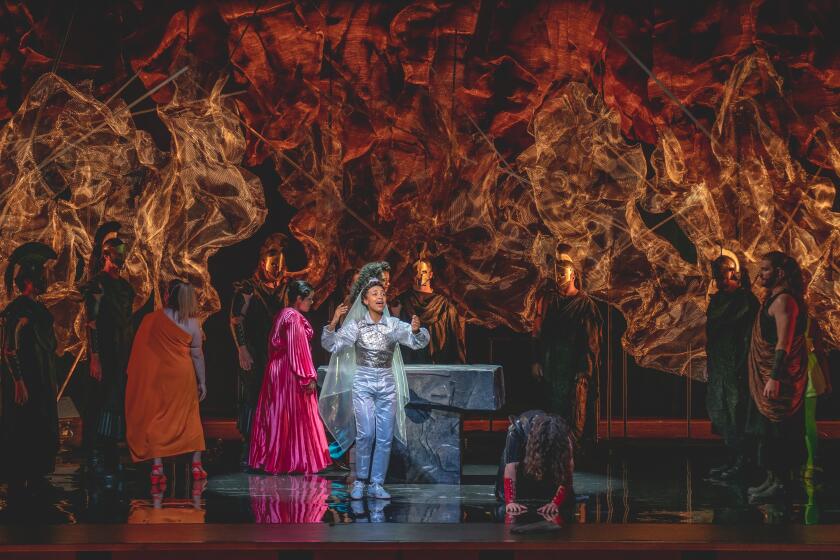Wayne Shorter, influential jazz saxophonist and composer, dies at 89

- Share via
Wayne Shorter, a saxophonist and composer who was universally acknowledged as one of the most original and influential jazz artists of the last six decades, died Thursday at 89.
Shorter, who worked closely with Art Blakey and Miles Davis and co-founded the influential Weather Report jazz fusion ensemble, died at an L.A. hospital, “surrounded by his loving family at the time of his transition,” his publicist Alisse Kingsley confirmed to the Los Angeles Times. No cause of death was given.
“Wayne Shorter, my best friend, left us with courage in his heart, love and compassion for all, and a seeking spirit for the eternal future. He was ready for his rebirth,” Herbie Hancock, Shorter’s closest friend for more than six decades, said in a statement Thursday.
“Maestro Wayne Shorter was our hero, guru and beautiful friend,” Don Was, president of Blue Note records, said in a statement Thursday. “His music possessed a spirit that came from somewhere way, way beyond and made this world a much better place.”
In early February, Shorter won his 12th Grammy — he was nominated 23 times — for improvised jazz solo on “Endangered Species” and most recently had been contemplating his next project, a jazz ballet. In all, he had more than 200 compositions, many of which became modern standards.
His achievements as a saxophonist — playing tenor and soprano saxophones — were equally impressive. Moving freely across an expressive horizon — from bebop to free improvisation — Shorter enhanced his imaginative soloing with a rich palette of saxophone sounds and textures.
The West Coast premiere of “...(Iphigenia)” brings together jazz stars and a legendary architect for a landmark music experience.
His influence, which followed the impact of John Coltrane’s playing, can be heard in the work of a wide range of contemporary tenor saxophonists, including Joe Lovano, Branford Marsalis, Chris Potter, Ravi Coltrane and numerous others.
Born Aug. 25, 1933, in Newark, N.J., Shorter and his brother Alan, a trumpeter, were encouraged by their father to pursue careers in music. But Shorter’s early artistic interests as a young teenager were in the visual arts, especially film, painting and sculpture. It wasn’t until 1948, when he discovered the emergence of bebop and the playing of such breakthrough jazz icons as Charlie Parker, Dizzy Gillespie and Lester Young, that he took up the saxophone, forming his own first band in 1952.

“I loved the energy and life of the music,” he told Down Beat magazine. “I couldn’t wait to go to New York to see Bop City, the Bandbox, the Latin bands and the Palladium and Birdland.”
After graduating from New York University in 1956 with a bachelor’s degree in music, he was drafted into the Army, serving for two years.
Shorter was already building a reputation as a highly regarded young talent while he was still in the service, playing with Horace Silver. On his discharge, he joined the Maynard Ferguson Big Band.
But his initial high visibility jazz associations began in 1959, when he joined Blakey’s Jazz Messengers as an instrumentalist and the band’s music director.
His first recording as a band leader, “Introducing Wayne Shorter,” was released in 1959. It would be followed by two dozen highly praised albums, including such classics as “Speak No Evil,” “JuJu,” “Adam’s Apple,” “Native Dance,” “Alegria” and “Without a Net.”
After leaving the Jazz Messengers in 1964, Shorter took over the saxophone role in the Miles Davis Quintet, replacing John Coltrane and becoming a significant contributor to a band still recognized as one of jazz history’s most influential ensembles.

In 1970 he founded Weather Report with keyboardist Joe Zawinul. For the next decade and a half, the group was a pathfinder in the development of jazz fusion, with Shorter’s works often leading the way in blending funk, rock and world music elements into Weather Report’s colorful musical mix.
For the balance of his career, Shorter’s creative versatility was on full display. He was a principal member of the band V.S.O.P., an ambitious remake — with trumpeter Freddie Hubbard — of the Miles Davis Quintet.
In the ’90s, Shorter and Hancock, always eager to work together, played a series of critically praised programs as a completely improvisational duo. Shorter also recorded with pop stars Don Henley, Carlos Santana and Joni Mitchell.
Beginning in 2000, Shorter led a stellar ensemble that included pianist Danilo Perez, bassist John Patitucci and drummer Brian Blade. Describing his enthusiasm about the band, Shorter told The Times in 2013: “No one knows what’s going to happen each night. I always say, we don’t really rehearse. How do you rehearse the unknown?”
Shorter married Teruka Nakagami in the early ’60s. Several of his compositions — including “Infant Eyes” and “Miyako” — were dedicated to their daughter, Miyako. After that marriage ended in 1964, he married Ana Maria Patricio in 1970. Their daughter, Iska Maria, was born the following year.
Shorter’s successes as a creative jazz artist were countered by several major personal tragedies. His daughter Iska Maria, then 14, died unexpectedly of a seizure in 1986. A decade later, his wife Ana Maria and his niece Dalila died in the Boeing 747 crash of TWA’s Flight 800 off the coast of Long Island. Shorter often acknowledged his faith as a Nichiren Buddhist helped him deal with his grief.
After the death of his wife Ana Maria in 1996, he married her close friend Carolina Dos Santos in 1999.
Between 1979 and 2005, Shorter received nine Grammy Awards. He was appointed a Jazz Master by the National Endowment for the Arts in 1998. He was a Kennedy Center Honors recipient in 2018, along with composer-pianist Philip Glass, singer Reba McEntire, singer-actor Cher and the four co-creators of the Broadway show “Hamilton.”
But Shorter was not one to be impressed by awards.
“When you go onstage,” he told the Washington Post in 2013, ”you have to put away all your Grammys, your accolades, put away all your newspaper articles. Go out there in your pajamas and tell a story.”
The musician is survived by his wife, Carolina, daughters Miyako and Mariana and grandson Max.
Heckman, a longtime jazz critic for The Times, died in 2020. Times staff writer Christie D’Zurilla contributed to this report.
More to Read
Start your day right
Sign up for Essential California for the L.A. Times biggest news, features and recommendations in your inbox six days a week.
You may occasionally receive promotional content from the Los Angeles Times.







